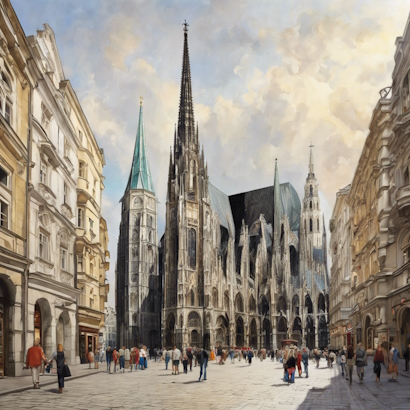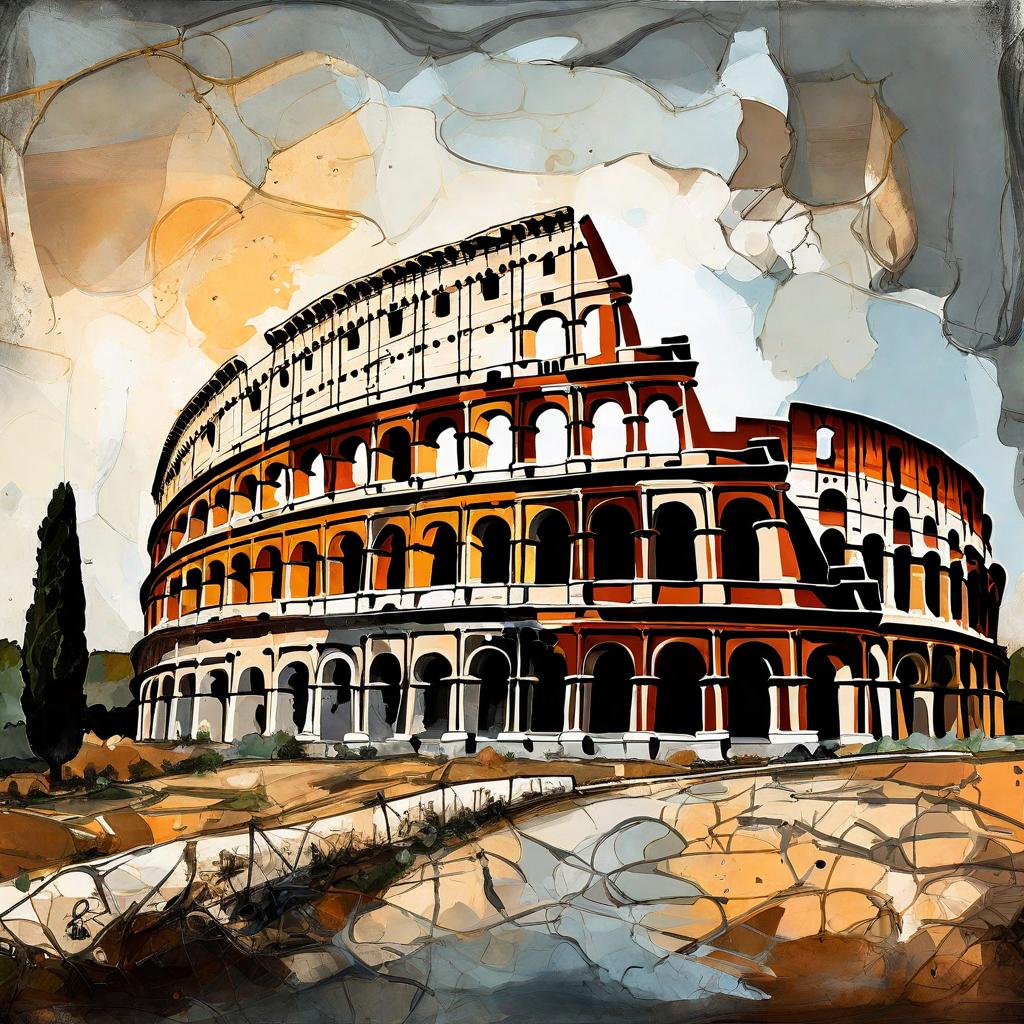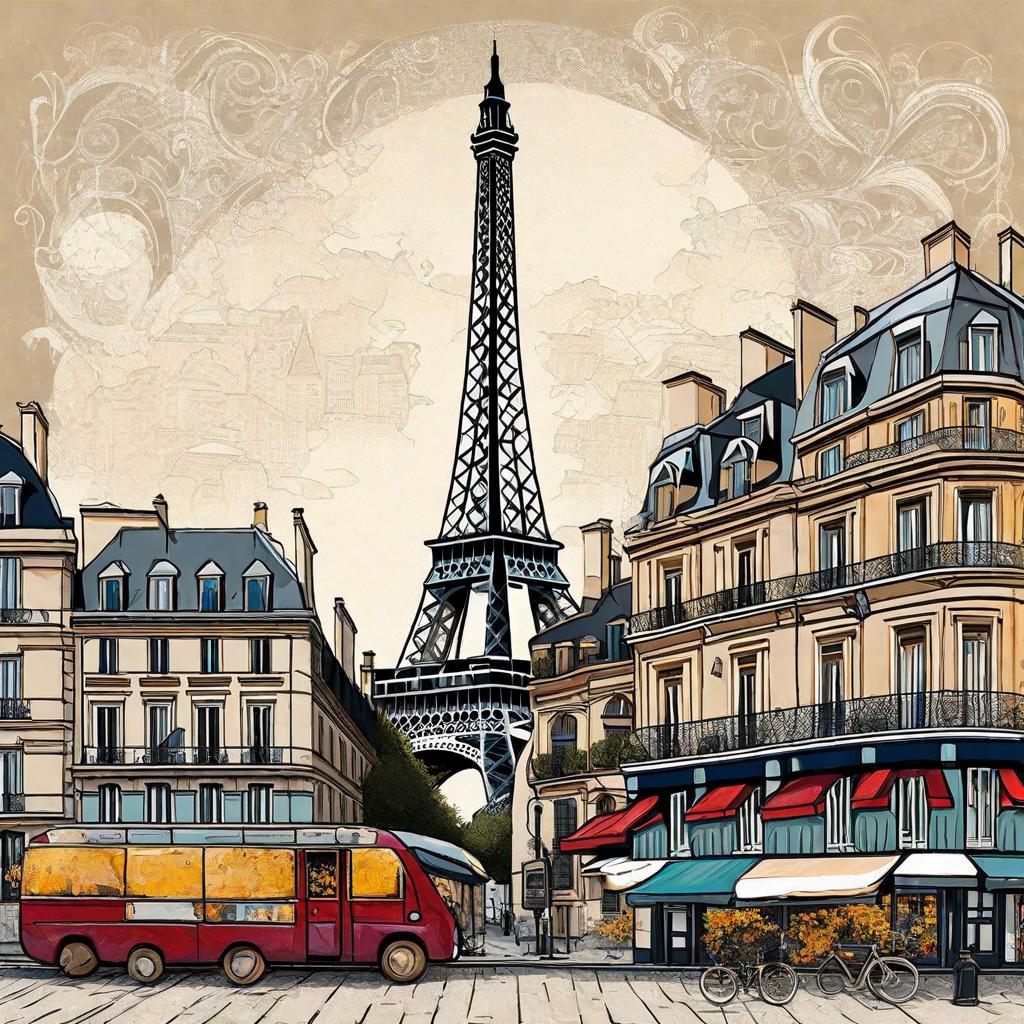Vienna, the capital of Austria, attracts visitors with its magnificent historical heritage, impressive architecture and rich cultural scene. From the majestic Schönbrunn
Palace to the breathtaking art collections in Vienna’s museums, the city offers endless opportunities to explore.
For those eager to experience the magic of Vienna,
here’s a round-up of what you shouldn’t miss on your visit.
A valuable opportunity
Contents
Best time to visit Vienna
Spring and autumn
April to October are generally considered the best seasons because:
- The weather is pleasant: Temperatures range from 14°C to 25°C, so you can enjoy walking outside and exploring the sights without being uncomfortably hot or cold.
- Fewer tourists: There are fewer tourists in Vienna during these months than in summer, so you can enjoy shorter queues and a quieter atmosphere.
- Cultural events: In spring and autumn, Vienna hosts many festivals, concerts and other cultural events.
Summer
June to August also has its charm because:
- Warm weather: If you like warm weather and summer activities, then summer is the ideal time to visit.
- Festivals: Many festivals take place in Vienna during the summer, including the famous Wiener Festwochen.
- Longer days: The days are longer in summer, giving you more time to explore the city.
Winter
December to March are beautiful but colder.
- Christmas markets: The Viennese Christmas markets are famous all over the world and are a great way to experience the Christmas spirit.
- Winter sports: If you like winter sports, you can enjoy skiing and snowboarding around Vienna.
- Fewer tourists: In winter, there are fewer tourists in Vienna, so you can enjoy a quieter atmosphere.
Whatever time of year you choose, Vienna always has something to offer. It’s a beautiful city with a rich history, culture and stunning architecture.
I recommend that you check the current weather before your trip and plan your activities accordingly and according to your interests. You don’t want to run away from the rain to a café just because you didn’t check the weather forecast and bring an umbrella or raincoat, do you ?
How to get to Vienna
You can get to Vienna by the usual ways described in more detail below.
- By plane: Vienna International Airport (VIE) is the largest airport in Austria and is located about 18 km from the city centre. The city centre can be reached in 20 minutes by the Airport City S-Bahn (S7) or in 30 minutes by the Vienna Airport Lines bus (line 1199).
- By train: The Wien Hauptbahnhof is the main train station in Vienna and is well connected to cities all over Europe. From the station, the city centre can be reached in 10 minutes on foot or by metro (line U1) in 5 minutes.
- By bus: There are buses from many European cities to Vienna. Bus stations are located at Wien Westbahnhof and Wien Erdberg. From the bus stations you can reach the city centre by metro (line U3) or tram.
- By car: Vienna can be reached by car via the A2, A4 and A5 motorways. Parking in the city centre can be expensive and difficult, so consider using the P+R car parks on the outskirts of the city and take public transport to the city centre. Motorways are toll roads and you will need to purchase an electric motorway vignette. Passing through some tunnels may incur extra charges. You can arrange everything at a glance at asfinag.at
How to travel around Vienna
Vienna has an extensive and reliable public transport network that includes metro, trams, buses and S-Bahn trains. Tickets can be purchased from ticket machines, newsagents or Wiener Linien advance sales.
- Metro: The Vienna Metro has 8 lines and 104 stations. It is the fastest way to get around the city centre.
- Trams: Vienna’s tram network is the largest in the world, with 28 lines and 1,200 stops.
Trams are a convenient and inexpensive way to get around the city centre and to the outskirts of the city. - Buses: Buses complement the metro and tram network and run to all parts of the city. S-Bahn: S-Bahn trains run from the city centre to surrounding areas and neighbouring countries.
- On foot: The centre of Vienna is compact and easy to get around on foot. Many sights are within walking distance of each other.
- Bicycle: Vienna is a cycling city and has a network of cycle paths that stretch throughout the city. You can rent bicycles from many rental agencies.
- Taxi: Taxis in Vienna are expensive but comfortable. You can hail one on the street or order one by phone.
Good to know
- If you want to save money, buy the Vienna City Card, which gives you unlimited use of public transport and discounts on entry to sights and attractions.
- If you plan to use public transport a lot, buy a 72-hour network ticket.
- If you want to explore the city centre on foot, buy a Hop-on Hop-off bus tour.
- If you want to experience Vienna by bike, rent a bike and explore the cycle paths.
How to find accommodation in Vienna
In order to find the ideal accommodation in Vienna, you must first find out the criteria that are important to you. These criteria include:
- Budget: How much do you want to spend on accommodation? Prices vary depending on the type of accommodation, location, amenities and season.
- Type of accommodation: Do you prefer hotel, hostel, apartment, guesthouse, Airbnb? Consider how much comfort and privacy you need, whether you want to share a kitchen and bathroom with others, and whether you care about services like breakfast or reception.
- Location: Do you want to live in the city centre, in a quiet neighbourhood, near the train station, or close to specific sights? Think about how you will get around the city and what you want to do.
- Amenities: Do you need Wi-Fi, parking, air conditioning, pool, kitchen in room? Determine what is important to you and what is superfluous.
- Guest reviews: Read guest reviews to find out about their experience at the property. You can find out if the accommodation is clean, if the staff is friendly, if there is noise in the area, etc.
Once you know your criteria, you need to compare accommodation prices. You can do this easily on booking.com
It is also important to consider the packages that many hotels and hostels offer. These packages include accommodation, breakfast and other services such as museum tickets or boat rides. They can be beneficial if you want to save money or make planning your trip easier.
Don’t forget to ask about discounts that many hotels and hostels offer for students, seniors or groups. Try to be flexible with dates and type of accommodation. If you are not strictly fixed to specific dates and types of accommodation, you can discover cheaper options.
Try booking a stay outside the high season, or consider less common types of accommodation such as apartments or guesthouses. They have their own charm and you can experience the city from a completely different and more natural perspective that perhaps only locals know.
What not to miss in Vienna
Vienna’s sights
- St Stephen’s Cathedral: A monumental cathedral in the centre of Vienna with an imposing tower and beautiful stained glass windows.
- Kunsthistorisches Museum Vienna: This may not resonate with anyone here but… The game Mafia 1 last level was a copy of this place, which I never knew at the time. If you love Mafia, you must see it.
- Schönbrunn Palace: Former summer residence of the Austrian emperors with extensive gardens, zoo and Gloriette.
- Hofburg: The former seat of the Habsburg dynasty with rich art collections and historic apartments.
- Belvedere: two Baroque palaces with galleries exhibiting works by Gustav Klimt and other Austrian artists.
- Prater: The Vienna amusement park with the iconic Riesenrad (ferris wheel) and other attractions.
Museums in Vienna
Art History Museum: A museum with an extensive collection of art from antiquity to the Baroque, including works by Rembrandt, Raphael and Titian.
- Natural History Museum: A museum with an extensive collection of dinosaurs, minerals and meteorites.
- Leopold Museum: a museum with an extensive collection of modern art, including works by Egon Schiele, Gustav Klimt and Oskar Kokoschka.
- Albertina Museum: A museum with an extensive collection of prints, including works by Leonardo da Vinci, Michelangelo and Rembrandt. Vienna Gardens:
- Burggarten: A beautiful garden in the centre of Vienna with an orangery, a butterfly house and a monument to Mozart.
- Volksgarten: Another beautiful garden in the centre of Vienna with a rose garden, fountains and a children’s playground.
- Schönbrunn Gardens: extensive gardens with fountains, labyrinth, zoo and Gloriette.
- Belvedere: gardens with a beautiful view of Vienna.
Other tips
- Stroll along Ringstrasse: The boulevard that surrounds the centre of Vienna and is lined with historic buildings.
- Visit one of Vienna’s many cafés and try a Sachertorte, a typical Viennese cake.
- Attend an opera performance at the Vienna State Opera.
- Take a trip to the Wachau Valley, a picturesque area along the Danube.
Affordable and popular restaurants in Vienna
- Figlmüller: Restaurant with traditional Viennese schnitzel.
- Wratschko: Restaurant with classic Viennese cuisine.
- Tian: Restaurant with Vietnamese cuisine.
- A Tavola: Restaurant with Italian cuisine.
- 7 Stern Wirtshaus: restaurant with traditional Viennese cuisine in a cosy atmosphere.
Tip: If you’re on a budget, consider buying the Vienna City Card, which gives you unlimited
use of public transport and discounts on entry to sights and attractions.
Nightlife in Vienna
Vienna offers a lively nightlife, whether you like clubs, bars, culture or just sitting in a café. Let’s have a look.
Clubs in Vienna:
- Flex: A well-known European club with a large dance floor and different music styles.
- Grelle Forelle: A club by the Danube Canal with alternative music and a bohemian atmosphere.
- Pratersauna: A former sauna turned into one of the most desirable clubs.
- Chelsea: Downtown club with live music, DJs and a dance floor.
- Volksgarten Disco: A disco with a retro atmosphere and dance music from the 80s and 90s.
Bars in Vienna:
- Amerikaner: A bar with a great selection of beers, cocktails and live music on weekends.
- Tür 7: A stylish bar with an elegant atmosphere and a wide range of cocktails.
- Steirereck im Stadtgarten: Bar and restaurant with a beautiful garden and view.
- Plachutta Wollzeile: A traditional Viennese pub with a great selection of beer and wine.
- Naschmarkt: A food market that turns into a centre with bars and restaurants in the evening.
Concerts and theatre in Vienna:
- Vienna State Opera: A renowned venue with a rich programme of operas and ballets.
- Konzerthaus Wien: Concert hall with a rich programme of classical music and jazz.
- Burgtheater: traditional theater with a rich programme of plays.
- Wiener Volksbühne: Modern theatre with an innovative programme.
- MuseumsQuartier: A cultural centre with theatre, dance halls and concerts.
Cafés in Vienna:
- Café Central: A traditional café with a beautiful interior and a wide range of coffee and cakes.
- Demel: Another famous café with a rich offer of coffee, cakes and chocolate.
- Hawelka: A small café with a bohemian atmosphere and a wide range of coffees and teas.
- Salm Kaffee: A modern café with a beautiful design and a wide range of coffee and sandwiches.
- Wunderkammer: A café and bar with a unique interior and a wide range of offerings.
Tourist Information Centre in Vienna
Address: Wien Tourismus, Obere Augartenstraße 40, 1020 Wien, Austria
Telephone: +43 1 212 88 12
Website: https://www.wien.info/de
Open: Monday – Friday: 9:00 – 18:00, Saturday: 9:00 – 13:00
Languages: English, German and other languages
A valuable opportunity
Contacts for emergency services and police in Vienna
Emergency calls:
- Police: 133
- Firefighters: 122
- Rescue service: 144
Other contacts:
- Vienna Police Telephone: +43 1 313 30
- Website: https://www.polizei.gv.at/
Vienna Fire Brigade:
- Telephone: +43 1 22 72 20
- Website: https://www.wien.gv.at/menschen/sicherheit/feuerwehr/
Vienna Ambulance Service:
- Telephone: +43 1 4000 500
- Website: http://www.roteskreuz.at/wien/ich-brauche-hilfe/rettungsdienst-imnotfall
Important:
- In case of emergency, always call the emergency line.
- Visit the emergency services website for more information about their services and how to contact them.
- You can also download emergency services apps to your phone.
Recommendation:
To help you communicate, try the SayHi app. This app uses speech recognition and translation technology to allow users to communicate easily and fluently in a foreign language. Simply record or enter text or voice input, and SayHi will provide a translation into the desired language. It’s a useful tool for travelers and people trying to communicate in multilingual environments.
Requirements for temporary and permanent employment
Brigade in Vienna:
- EU and EEA nationals do not need a work permit.
- The minimum age to work is 15 years.
- Persons under the age of 18 must have permission from their legal guardian to work.
Permanent employment in Vienna:
- EU and EEA nationals do not need a work permit.
- Non-EU and EEA nationals need a work permit. You must apply for a permit at the
- Austrian embassy in your country.
- The minimum age to work is 18 years.
Further information:
For more information about working in Vienna, visit the website of the Austrian
Ministry of Labour, Family and Social Affairs: https://www.bmeia.gv.at/
You can also contact the Austrian embassy or consulate in your country.



